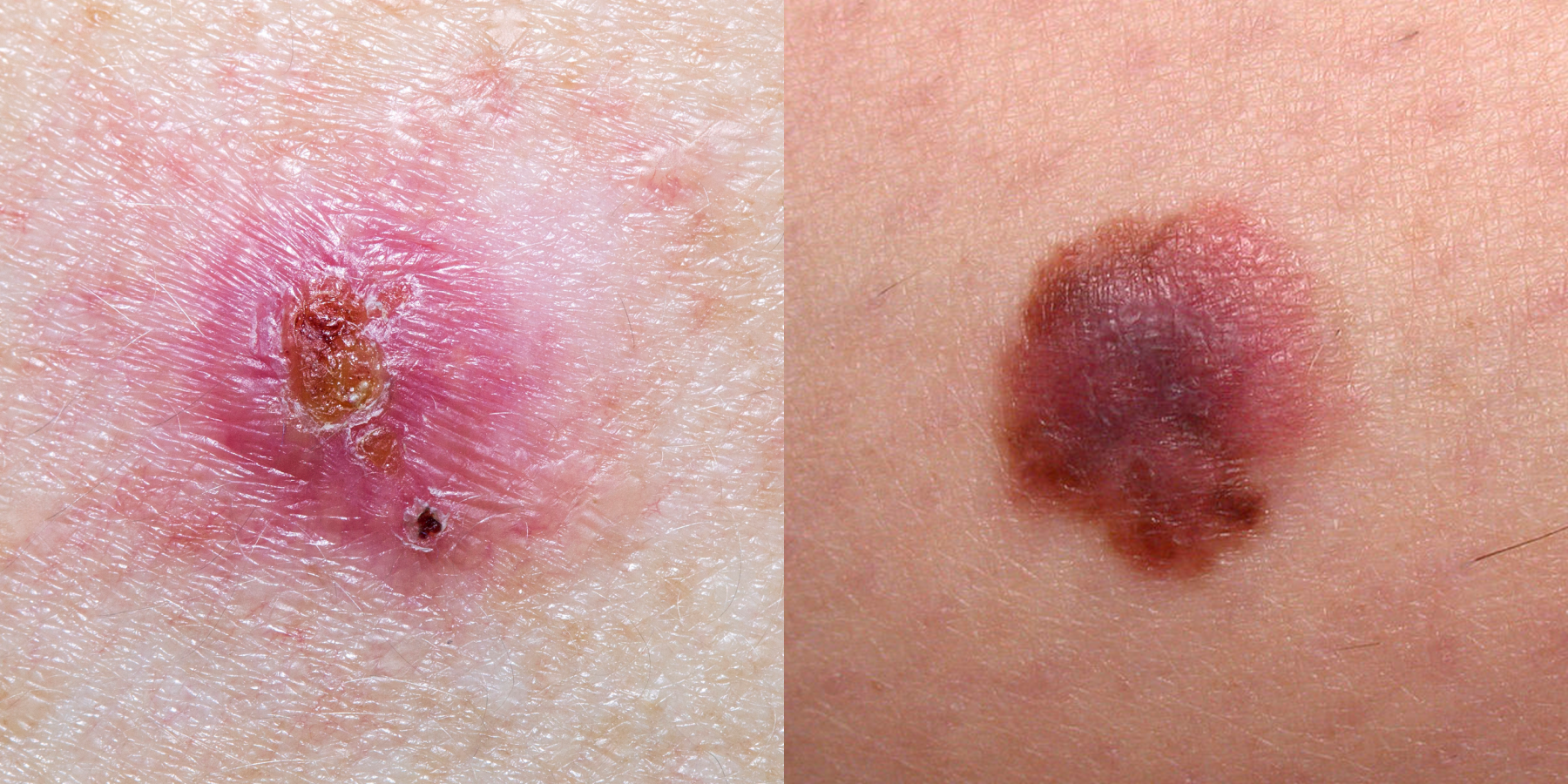Understanding Skin Cancer: Causes, Symptoms, and Prevention
Causes and Risk Factors
Skin cancer is a prevalent form of cancer that develops when skin cells undergo abnormal growth. In this comprehensive guide, we will delve into the causes, common symptoms, and effective prevention strategies for this potentially dangerous condition. Understanding the factors that contribute to skin cancer can help you take proactive measures to protect your skin health.
 Causes: Skin cancer is primarily caused by excessive exposure to ultraviolet (UV) radiation from the sun or artificial sources like tanning beds. Prolonged exposure to UV rays damages the DNA within skin cells, leading to mutations that result in the uncontrolled growth of cells and the formation of cancerous tumors.
Causes: Skin cancer is primarily caused by excessive exposure to ultraviolet (UV) radiation from the sun or artificial sources like tanning beds. Prolonged exposure to UV rays damages the DNA within skin cells, leading to mutations that result in the uncontrolled growth of cells and the formation of cancerous tumors.
Risk Factors: Several factors increase the risk of developing skin cancer:
Common Symptoms
Detecting skin cancer in its early stages is crucial for successful treatment. Being aware of the common symptoms can help you identify potential warning signs and seek medical attention promptly.
Prevention Strategies
Prevention is key to reducing the risk of developing skin cancer. Implementing the following strategies can help protect your skin and maintain its health:
In conclusion, understanding the causes, symptoms, and prevention strategies related to skin cancer is essential for maintaining healthy skin. By taking proactive steps to protect yourself from excessive UV exposure and promptly seeking medical attention for any concerning symptoms, you can reduce the risk of developing this potentially dangerous condition and promote long-term skin health.
When detected and treated early, skin cancer can often be cured. Treatment options may include surgical removal, radiation therapy, topical medications, or immunotherapy, depending on the type and stage of the cancer. Regular skin exams and early detection are key to successful treatment outcomes.
The success rate for treating skin cancer depends on various factors such as the type and stage of cancer, treatment approach, and individual patient factors. In general, when detected early, the success rate for treating non-melanoma skin cancers like basal cell carcinoma and squamous cell carcinoma is very high, with cure rates exceeding 95%. Even in cases of melanoma, the most aggressive form of skin cancer, early detection and treatment can significantly improve the chances of successful outcomes and long-term survival.
People with fair skin, a history of sunburns, a family history of skin cancer, and those who spend a lot of time in the sun or use tanning beds are at a higher risk of developing skin cancer.
Early signs of skin cancer can include changes in the appearance of moles or the development of new moles, irregular growths on the skin, non-healing sores, and persistent itching or pain.
To protect yourself from skin cancer, it is important to limit sun exposure, use sunscreen with a high SPF, wear protective clothing, seek shade when the sun is strongest, and avoid tanning beds.
We are associated with experienced and highly skilled medical professionals. We use the latest medical technology available in the world and we provide medical services in collaboration with JCI & NABH Certified hospitals only. Our services include various types of treatment and organ restructuring and transplant.
